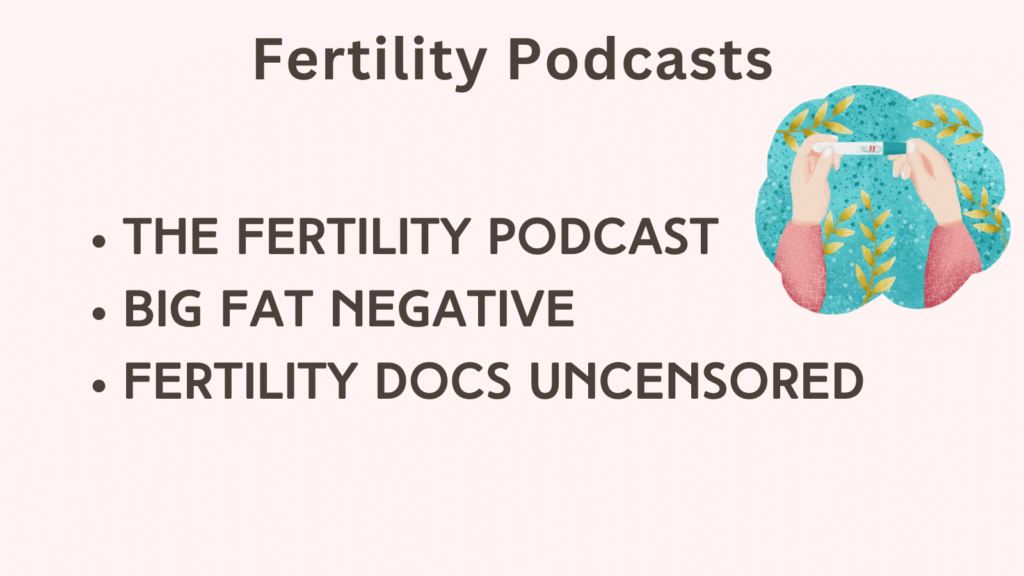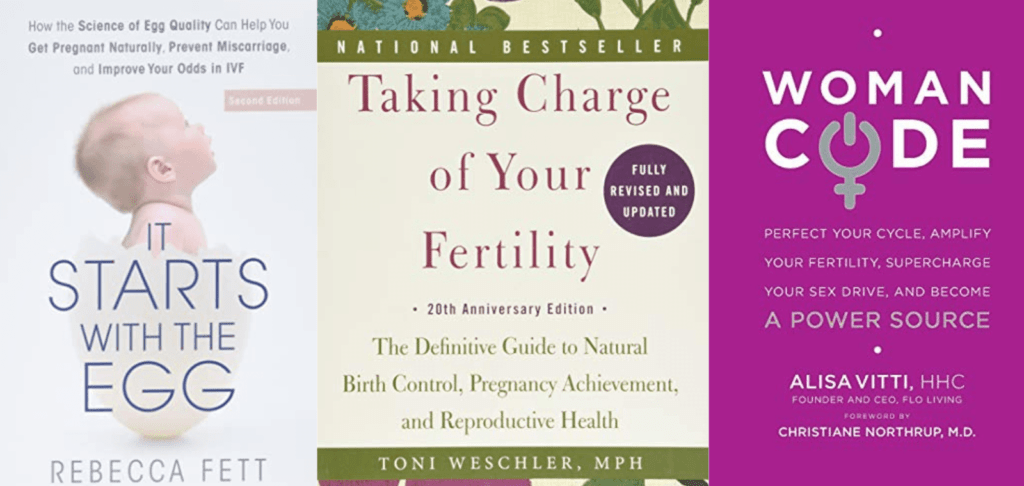Going through infertility can be an emotionally challenging and stressful experience.
Read on to find out how infertility self-care can help you on your journey.
Emotional Impact of Infertility
Infertility can have a significant emotional impact on individuals and couples.
It is a deeply personal and challenging experience that can bring about feelings of sadness, frustration, anger, guilt, and even grief.
For those who are longing to start or expand their family, the inability to conceive can create a sense of loss and disappointment.
It may lead to questioning one’s self-worth, as well as feelings of inadequacy or failure.
The constant reminders of pregnancy and childbirth in society can also intensify these emotions.
Infertility can strain relationships, as it often involves difficult decisions, medical procedures, and financial burdens.
Couples may experience disagreements or conflicts due to the stress and pressure associated with fertility treatments.
Additionally, friends and family members who are successfully conceiving may unintentionally cause feelings of envy or isolation for those struggling with infertility.
The journey of infertility can also take a toll on an individual’s mental well-being.
It is common to feel overwhelmed, anxious, or depressed when faced with the uncertainty and disappointment of unsuccessful attempts to conceive.
The constant focus on fertility can consume thoughts and energy, making it challenging to maintain a positive outlook or engage in other aspects of life.
Related: Best 5 Chinese Medicine Fertility Tips
Importance of Self-Care During Infertility Journey
Self-care is incredibly important during the infertility journey for a number of reasons.
Here are a few key reasons why practicing self-care is crucial:
1. Emotional well-being: Dealing with infertility can be an emotional rollercoaster, ranging from hope and excitement to sadness, frustration, and even guilt. Practicing self-care activities such as journaling, therapy, or engaging in hobbies can help you process these emotions and maintain your emotional well-being.
2. Mental health support: Infertility can take a toll on mental health, leading to increased stress, anxiety, and even depression. Taking care of yourself mentally through practices like mindfulness, meditation, or seeking professional help can help you better navigate the emotional challenges that come with infertility.
3. Physical well-being: Going through fertility treatments or dealing with infertility-related health issues can put a strain on your physical health. Prioritizing self-care activities such as exercise, proper nutrition, adequate sleep, and regular check-ups can help improve your overall physical well-being, which may positively impact your fertility journey.
4. Relationship maintenance: Infertility can place strain on relationships, especially between partners. Engaging in self-care activities as a couple, such as date nights, shared hobbies, or even just open and honest communication, can help maintain the strength of your relationship throughout the infertility journey.
5. Coping with uncertainty: The road to parenthood can often be unpredictable and filled with uncertainty. Engaging in self-care practices that promote relaxation, stress reduction, and mindfulness can help you cope with the uncertainties and unknowns that come with infertility.
Related: Fertility Resources (Support Groups, Apps, Books, Podcasts)
Infertility Self-Care Ideas
Self-care is not a one-size-fits-all approach.
What works for one person may not work for another.
It’s important to explore different strategies and find what resonates with you and brings you comfort and peace during this challenging journey.
Following are some ideas:
Emotional Self-Care during Infertility
Here are some tips for practicing emotional self-care:
#1. Acknowledge and express your emotions
Allow yourself to feel the full range of emotions that come with infertility, including frustration, sadness, anger, and fear.
Give yourself permission to cry or express your feelings through journaling or talking with a trusted friend or therapist.
You may find the following journal prompts helpful:
1. Reflect on your emotions surrounding infertility. How do you feel about the situation? Are there any specific challenges or fears that arise?
2. Write about the impact infertility has had on your relationships, both with your partner and others close to you. How have these dynamics changed over time? Have there been any unexpected sources of support or strain?
3. Explore any coping mechanisms or self-care practices that have helped you navigate through infertility. Are there any activities, hobbies, or routines that bring you a sense of peace and calm?
4. Write about your support system. Who are the people that are there for you during this journey? How do they provide comfort and understanding?
5. Reflect on your own resilience and strength throughout this journey. What strategies or mindset shifts have helped you stay positive and hopeful during challenging times?
6. Reflect on any lessons or personal growth you’ve experienced as a result of infertility. How has this journey shaped you as an individual? Are there any insights you’ve gained along the way?
7. Describe your hopes and dreams for starting a family. What does parenthood mean to you? How do you envision your life with children?
8. Explore any alternative paths to parenthood that you’ve considered or explored. How do you feel about options such as adoption, surrogacy, or fertility treatments? What factors come into play when making these decisions?
9. Write a letter to your future child, expressing your love and longing to meet them. What would you want them to know about your journey to become their parent?
10. Describe any rituals or traditions you’ve created to honor your experience with infertility. How do these practices provide solace or a sense of meaning?
These journal prompts are meant to encourage self-reflection and provide a space for you to explore your thoughts and feelings.
Feel free to adapt them to your own unique experiences and needs.
Related: What An Introvert Uses To Recharge?
#2. Create a support system
Surround yourself with people who understand and support you. Seek out friends or family members who can provide a listening ear or join a support group for individuals experiencing infertility.
Connect with others who have gone through similar experiences, as they can offer empathy, advice, and encouragement.
#3. Set boundaries
It’s important to set boundaries around conversations and situations that may be triggering or overly stressful.
Politely decline invitations to events that might be difficult to attend, and don’t hesitate to ask loved ones for space or time alone when needed.
Related: Best 5 Books About Foster Care
#4. Practice self-compassion
Be kind and gentle with yourself. Infertility can sometimes make you feel like your body has let you down, but it’s important to remind yourself that you’re not alone and that it’s not your fault.
Treat yourself with love and patience during this challenging time.
Physical Self-Care during Infertility
#5. Exercise regularly
Engaging in regular physical activity not only helps maintain a healthy weight but also releases endorphins that can improve mood and reduce stress.
Choose activities you enjoy, such as walking, yoga, swimming, or dancing.
#6. Eat a balanced diet
Fuel your body with nutrient-rich foods like fruits, vegetables, whole grains, lean proteins, and healthy fats.
Avoid processed foods, excessive caffeine, and alcohol. Consider consulting a nutritionist for personalized advice.
#7. Get enough sleep
Aim for seven to eight hours of quality sleep each night.
Establish a bedtime routine, create a comfortable sleep environment, and try relaxation techniques like deep breathing or listening to calming music before bed.
Related: Best 21 Hobbies For Introverts (+FREE PDF Download)
#8. Seek acupuncture and massage therapy
Studies have shown that acupuncture and massage therapy can enhance fertility by reducing stress, improving blood flow, and balancing hormones. (source)
Consult with a licensed therapist experienced in fertility-related treatments.
#9. Stay hydrated
Ensure you drink enough water throughout the day to stay properly hydrated.
Water helps maintain optimal bodily functions and supports overall health.
While a good rule of thumb is eight 8-ounce glasses of water per day, a quick way to assess hydration levels is to see if your urine is clear or light yellow.
Related: Top 7 Characteristics of Female Introverts
#10. Limit exposure to toxins
Minimize your exposure to harmful chemicals found in cleaning products, pesticides, and certain cosmetics.
Opt for natural and organic alternatives whenever possible.
Find a list of chemicals to avoid HERE.
Remember to consult with your healthcare provider to ensure that any physical self-care practices align with your specific situation and health needs.
Mental Self-Care during Infertility
#11. Find healthy coping mechanisms
Engage in activities that bring you joy and help you relax. This could include hobbies like painting, gardening, cooking, or spending time in nature.
Engaging in regular exercise, practicing mindfulness or meditation, and getting enough sleep can also contribute to your overall emotional well-being.
#12. Educate yourself
Gain a better understanding of the infertility process and treatment options by seeking reliable information from reputable sources.
Knowledge can empower you and help ease anxiety about the unknown.
Related: Best 12 Fertility Books
#13. Maintain a balanced lifestyle
Take care of your physical health by eating nutritious meals, getting enough sleep, and engaging in regular physical activity.
A healthy body can positively impact your mental well-being.
#14. Track negative thoughts
This involves becoming aware of any recurring negative thoughts or beliefs related to infertility and intentionally challenging and replacing them with more positive and realistic ones.
For example, instead of believing that “I am defective because I can’t conceive,” one can reframe it as “Infertility does not define my worth as a person, and I am capable of finding other avenues to create a fulfilling life.”
Related: How To Be In Your Feminine Energy With A Man?
#15. Go on a digital detox
Taking time away from screens can provide a much-needed respite from the constant reminders, information overload, and comparison traps that social media and online forums often present.
#16. Use affirmations
Affirmations are powerful statements that aim to shift your mindset towards a more positive and hopeful outlook.
By repeating affirmations regularly, you can rewire negative thought patterns and foster a sense of self-compassion and optimism.
One example of an affirmation that can be helpful in the context of infertility is “I trust in my body’s ability to conceive.” This affirmation emphasizes the belief in your body’s innate power and reinforces the idea that fertility is a natural process.
Repeat this affirmation whenever negative thoughts or doubts arise, allowing it to counteract feelings of despair or hopelessness.
Related: Best 30 Fertility Affirmations
#17. Seek professional help
Consider reaching out to a therapist or counselor who specializes in infertility-related issues.
They can provide guidance, support, and coping strategies tailored to your specific needs.
Nurturing Relationships during Infertility
#18. Communicate openly
Share your feelings, fears, and hopes with your partner, family, and friends.
Open and honest communication can foster understanding and empathy, helping others to better support you.
Remember that you and your partner are facing this journey together. Offer patience, understanding, and support to one another.
Validate each other’s feelings and provide a listening ear when needed.
#19. Stay connected intimately
Physical intimacy can sometimes become emotionally charged when dealing with infertility.
Intimacy extends beyond conception. Exploring alternative forms of intimacy such as sensual massages or trying new hobbies like cooking or art can help strengthen your bond as a couple.
#20. Engage in activities that bring you closer
Plan fun and enjoyable outings together that don’t revolve around fertility, such as date nights, weekend getaways, or pursuing shared interests.
These activities can help you maintain a healthy connection outside of the infertility journey.
Related: Best 12 Books About Miscarriage
Conclusion
Self-care is not selfish, but rather a necessary form of self-preservation and nurturing.
By taking care of your own physical, emotional, and mental well-being, you can better cope with the challenges of infertility and increase your resilience throughout the journey.
Everyone’s journey is unique. Be patient with yourself, keep the lines of communication open with your loved ones, and don’t hesitate to seek professional help if needed. You are not alone, and there is always hope for a brighter future.


